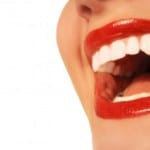Most people are aware of the benefits of regular brushing, but have you ever heard of inter-dental brushing? This effective oral hygiene technique targets the cracks between the teeth to reduce the risk of dental disease and keep your teeth looking white and clean.
About inter-dental brushing
Inter-dental brushing is used to brush between the teeth. You may have noticed that it’s particularly hard to clean these areas with a normal toothbrush and they can be prone to staining and plaque build-up. Inter-dental brushes are specially designed to target these areas. They are much smaller than normal toothbrushes and they are flexible, so you can bend them to get right into the gaps.
Ideally, you should try to include inter-dental brushing in your oral hygiene regime on a daily basis.
Why is inter-dental brushing important?
Inter-dental brushing is a means of cleaning areas of the mouth that are commonly missed when cleaning the teeth and this helps to reduce the risk of decay and gum disease. If you aren’t able to clean properly, there is a risk that plaque will form. Plaque is a sticky substance that comprises of bacteria, food particles and saliva. When they feed, the bacteria in plaque release acids and these erode the enamel, increasing the risk of decay and irritating the gums. Poor oral health does not just increase the risk of pain and other unpleasant symptoms, such as swelling and irritation, it can also increase your risk of general health problems.
Help with inter-dental brushing
If you need help with inter-dental brushing or you would like to find out more, our dentists and hygienists will be happy to help. There are various different sizes available and your dentist or hygienist can show you how to use the brush effectively.











